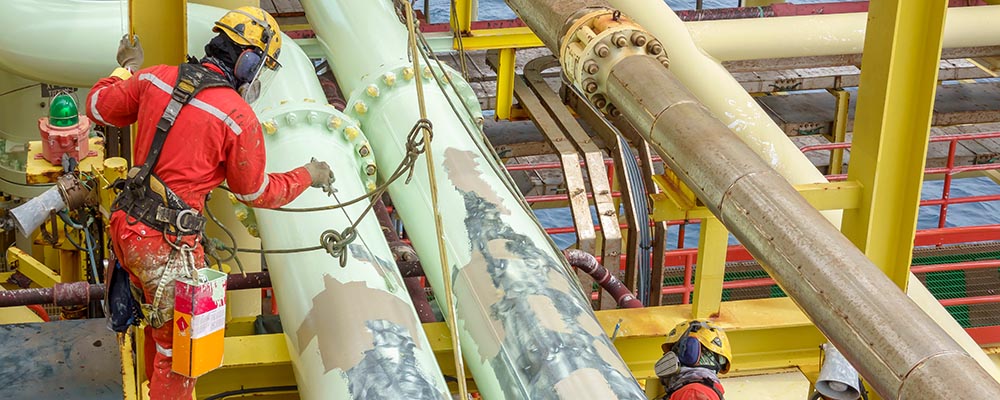Corrosion in energy facilities and pipelines has been an issue for years. Crude oil and natural gas can carry high-impurity products that are inherently corrosive. Harsh environments, such as offshore platforms, can also cause a number of corrosion-related issues. Corrosion can damage structural integrity and lead to hazardous situations, including leaks. Material degradation results in the loss of strength, ductility and/or impact strength, which can lead to a component completely breaking down. Until the component is replaced, production stops and service is disrupted.
The oil and gas industry is heavily regulated, and corrosion-prevention initiatives help mitigate problems. Regulations may cover the release of toxic and hazardous substances, health and safety, refinery plant emissions, petroleum product specifications, and other issues.
Cost is also an important factor in the need for corrosion prevention. According to a National Association of Corrosion Engineers (NACE) study:
“The total annual cost of corrosion in the oil and gas production industry is estimated to be $1.372 billion. That figure can be broken down into $589 million on surface pipeline and facility costs; $463 million annually in downhole tubing expenses; and another $320 million in capital expenditures related to corrosion.”
Some oil companies have had their pipelines rupture due to corrosion, with oil spillages creating environmental pollution and ongoing media coverage. Long-term ecological damage is another impact of corrosion.
Industrial paints and protective coatings can prevent corrosion. The choice of coatings is based on environmental factors, including salt air, temperature, chemicals, toxins, and acidic and alkaline environments. To be effective, the coatings must be properly applied. NACE and the Society for Protective Coatings (SSPC) jointly established the Painter, Industrial Coating and Lining Application Specialist Certification (CAS) program for industrial coatings. These standards define the criteria for the education, training, experience, knowledge, and motor skills required to prepare and apply protective coatings to steel and concrete surfaces of complex industrial and marine structures.
NACE and SSPC recently merged to become the Association for Materials Protection and Performance (AMPP) in order to create a unified voice for the corrosion control and protective coatings industries. You can read more about the merger here.
If you have facilities or structures that need to be protected from corrosion, contact us today at (410) 564-5876 or sales@FinishingSolutionsNetwork.com to be connected with CAS certified industrial coatings contractors in your area.



